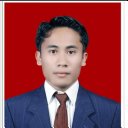Strategi Dakwah Dalam Mengatasi Patologi Sosial Dalam Pengatasan Penyakit Masyarakat Di Desa Kampung Melayu Kecamatan Bermani Ulu Kabupaten Rejang Lebong
DOI:
https://doi.org/10.29240/jdk.v7i2.5772Keywords:
Da'wah Strategy, Society Diseases.Abstract
From the phenomenon that researchers saw in Kampung Melayu Village, Bermani Ulu District, Rejang Lebong Regency, that the problem of community disease faced by the da'i in developing Islamic da'wah, especially in the village of Kampung Melayu. The da'i in developing da'wah still find it difficult what strategy to give in dealing with situations like this. Moreover, the media they have are still inadequate, they have not mastered many da'wah methods, especially the material which only explains the problem of prayer or other worship that has never been associated with worldly material such as poverty. The methodology used by the researcher is descriptive qualitative method. This approach is used because the data needed by the author is only in the form of information, explanations, and verbal information. The results of the study can be concluded that the disease of the community in the village of Kampung Melayu, Bermani Ulu District, Rejang Lebong Regency, there are several kinds, such as gambling, crime, liquor and there is also the use of illegal drugs. The da'i strategy to overcome the ills of the community in Kampung Melayu, Bermani Ulu District, Rejang Lebong Regency, carried out by the da'i is by discussing to increase religious knowledge and also inviting preachers from the city of Curup and its surroundings when there is a commemoration of Islamic holidays and forming TPQ which is followed by many children, if the researcher relates it to the theory of the da'wah strategy used is sentimental with a discussion approach.
Downloads
References
Ahmad, Amrullah (Ed). 1978. Dakwah Islam dan Perubahan Sosial. Yogyakarta: PLPAN.
Amin, Munir Samsul. 2009. Ilmu Dakwah. Jakarta: Amzah.
Arcanita, Rafi’a. 2013. Hadist I. Curup: Lp.2 Stain Curup.
Aziz, Ali Moh. 2009. Ilmu Dakwah. Jakarta: Kencana.
Fathuhrrohman, Pupuh. 2010. Strategi Mewujudkan Pembelajaran Bermakna Melalui Penanaman Konsep Umum Dan Konsep Islami. Bandung: Refika Aditama.
http://info.g-excess.com/id/online/Minuman-Keras-Narkoba.info.
http://organisasi.org/arti-definisi-pengertian-zat-adiktif-jenis-macam-dampak-efek ketergantungan-pada-organisme-hidup.
https://plus.google.com/113433339776683516327/posts/hWoqg76giF5.
Moloeng, .J Lexi. 2003. Metode Penelitian Kualitatif. Bandung: Remaja Rosdakarya.
Kafie, Jamaluddin. 1993. Psikologi Dakwah. Surabaya: Indah.
Kartono, Kartini. 2005. Patologi Sosial. Jakarta: Pt. Raja Grafindo Persada.
Komariah, Aan. 2014. Metode Penelitian Kuantitatif Kualitatif. Bandung: Alfabeta.
Madjid, Nurcholish. 1999. Cendikiawan dan Relijiusitas Masyarakat. Jakarta: Paramadina.
Mushan, Zulkifli. 2002. Ilmu Dakwah. Semarang: fatiya.
Nazir, Moh. 1988. Metode Penelitian Ghalia Indonesia. Jakarta: persada.
Omar, Toha Yahya. 1967. Ilmu Dakwah. Jakarta:Widjaya
Rahman. Abdul. 2010. Metode Dakwah. Curup: LP2 STAIN Curup.
Agama Departemen RI . 2006. Alqur’an dan Terjemah-nya. Bandung : Diponegoro.
Depertemen Agama RI. 1989 Al-Qur’an dan Terjemahnya. Surabaya: Mahkota.
Sanwar, Aminuddin. 1992. Pengantar Ilmu Dakwah. Semarang: Fakultas Dakwah.
Siagan, Sondang. 1995. Manajemen Stratejik. Jakarta: Bumi Aksara.
Suhandang, Kustadi. 2009. Retorika Strategi teknik dan taktik pidato. Bandung: Nuansa.
Syukir, Asmuni.1983. Strategi Dakwah Islam. Surabaya: Usaha Nasional.
Tasmara, Toto. 1979. Komunikasi Dakwah. Jakarta: Gaya Media Pratama.
Umar, Huseain. 2005. Metode Penelitian untuk Skripsi dan Tesis. Jakarta : Raja Grapindo Persada.
Yakub, Mustafa Ali. 1997. Sejarah dan Metode Dakwah Nabi. Jakarta: Firdaus Pustaka.
Zaidan, Karim Abdul. 1980 Dasar-Dasar Ilmu Dakwah. Jakarta: Media Dakwah.
Downloads
Published
How to Cite
Issue
Section
Citation Check
License
Authors who publish with Jurnal Dakwah dan Komunikasi agree to the following terms:- Authors retain copyright and grant the journal right of first publication with the work simultaneously licensed under a Creative Commons Attribution-NonCommercial-ShareAlike 4.0 International License (CC BY-NC-SA 4.0) that allows others to share the work with an acknowledgment of the work's authorship and initial publication in this journal.
- Authors are able to enter into separate, additional contractual arrangements for the non-exclusive distribution of the journal's published version of the work (e.g., post it to an institutional repository or publish it in a book), with an acknowledgment of its initial publication in this journal.
- Authors are permitted and encouraged to post their work online (e.g., in institutional repositories or on their website) prior to and during the submission process, as it can lead to productive exchanges, as well as earlier and greater citation of published work (See The Effect of Open Access).














